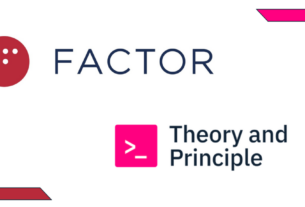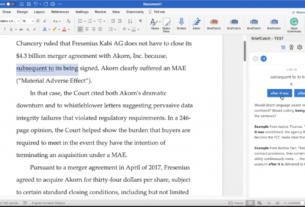Once Again We Must Ask –What business are we in?
Over the years when speaking to library and knowledge management audiences, I have often invoked the importance of knowing what business we are in.
,I became a librarian because “I loved books.” Yet on the day when I started my first law library job, a hulking piece of equipment was rolled through the door of the Pace University Law Library. This was an omen, like a comet across the night sky, my career path would pivot in unforeseeable directions. The Lexis DeLuxe research terminal was the size of a washing machine, and it connected to Mead Data Central computers in Ohio via a dial-up modem. This “state of the art” equipment provided access to Ohio statutes and cases. Within 10 years the Lexis and Westlaw WALT terminals would shrink, the World Wide Web would be born and the stacks of books would be compressed into bits of data accessible on everyone’s desktop.

I love the “Black & Decker marketing strategy that recognized that their customers “don’t want a drill they want a half-inch hole in a board.” And librarians who thought lawyers and law firm administrators only needed books became flotsam in a surging tide of technology. Librarians and knowledge managers need to be aligned with what lawyers really need and that they have the unique expertise to deliver: information that gives them a competitive edge, new clients, happy clients, predictive and actionable insights , efficient workflow, and tools that make their lives easier. (Read the full post at Legal Tech Hub)
Seizing the Technology of the Day
Before the birth of the World Wide Web, while still cosseted in a print world, librarians “discovered fire” in the form of online databases which were not available to the general public: SDC Orbit (scientific and patent data), Lockheed Dialog ( news, people and business data), Information America (people data) The New York Times Infobank, the Dow Jones News Wire to name a few. These new data streams – introduced to law firms by librarians, drove new kinds of information into the hands of law firm leaders and generated the explosion of competitive intelligence and business development initiatives in law firms which followed.
As legal information moved online and as dockets were transformed into analytics, law librarians have had repeated opportunities to redefine their departments, their services, their staffs and their space into something new. The 21st century law library should be more like an “Apple Store” with a “Genius bar” rather than a reference desk hidden behind some stacks. Most who survived the last digital wave have become transformation agents. Reference librarians became business information specialists. CI specialists and knowledge evangelists. Catalogers– the original taxonomists, moved into portal design and API management. Technical services librarians managed knowledge and innovation projects.
Our profession was challenged by then first wave of digital information but, I believe we have not just survived but thrived by embracing new skills, new roles and broader partnerships.
Will the Generative AI Revolution Be Different? A National Discussion on the Future of the Profession
I was recently invited to participate in a roundtable on Artificial Intelligence and the Future of Law Libraries. The roundtables are the brainchild of Teresa M. Miguel-Stearns, Associate Dean, Legal Information Innovation Director, Law Library & Professor of Law and Cas Laskowski, Head of Research, Data, & Instruction Technology & Empirical Services Librarian both from the Daniel F. Cracchiolo Law Library, at the University of Arizona.
I asked Cas Laskoski how they were inspired to undertake the initiative. She observed that “we are all struggling as individuals to understand the potential impact of AI. I believe we need to prepare as a professional to address these challenges.” The roundtables will provide a forum for scenario planning and discussion developed by the United Nations.
The goal of this collaborative initiative is to provide guidance to law libraries across the country as they work to strategically incorporate artificial intelligence into their operations and plan for the future of the profession.
The initiative will consist of a series of regional roundtables on Artificial Intelligence and the Future of Law Libraries. These events will take place during the 2023-2024 academic year. Each regional roundtable will gather a diverse group of law library stakeholders, advocates, and community partners to discuss both the risks and opportunities presented by AI technologies. The Mid-Atlantic roundtable took place on October 13th in Washington, DC. Additional roundtables are planned in Chicago (Midwest Region) November 3rd, Dallas (South Central Region) February, 2024 Atlanta (Southeast Region) March 1, 2024; Boston (Northeast Region) April 2024 and Palo Alto (West Coast) May 10th, 2024.
The Project Team In addition to the co-founders, the Project team includes Kenton Brice, Director of Technology Innovation at the University of Oklahoma Law Library,Richard L. Buckingham, Director of the Law Library and Information Resources, Associate Professor of Legal Research at the Suffolk University Law School; Kristina Niedringhaus, Associate Dean for library and information services and associate professor of law: Patrick Parsons, associate director for Legal Technology & Innovation and executive director of the Legal Analytics & Innovation Initiative (LAII ) at the Georgia State College of Law Library; George H. Pike, Director of the Pritzker Legal Research Center and Senior Lecturer at the Northwestern University School of Law and Beth Williams, Associate Dean of the Robert Crown Law Library and Senior Lecturer in Law at Stanford Law School.
The agenda. On the day of the event, the coordinators will lead participants through three rounds of scenario-building methodology to consider the ways AI might impact the multi-faceted areas of: (1) collections, (2) services, (3) staff or (4) space. There will be approximately 30 attendees at each roundtable who will be separated into groups of about 5 people. Each group will have to build their own worst case and best-case scenarios. To assure openness and confidentiality of the groups, the sessions will not be recorded and all attendees are requested to honor the anonymity of attendees, unless attendees agreed to be quoted in public.
The Project website provides an overview: “Together, we will explore and uncover mistakes we cannot afford to make (vicious cycles) and opportunities we cannot afford to miss (virtuous cycles). No experience in scenario-building methodology is required – just creative thinking about the future. A more precise sample format with time allotments is available at the bottom of our Future of Law Libraries project page.
The Roundtable Reports Each of the Regional Roundtables will produce a stand-alone report that will be published the Roundtable website. The hosts of each roundtable will take the lead in drafting the reports but will give attendees an opportunity to contribute if they choose to.
The Artificial Intelligence and the Future of Law Libraries round table is coming to a city near you. If you get the knock on the door, please answer! More information on each roundtable is available here.


